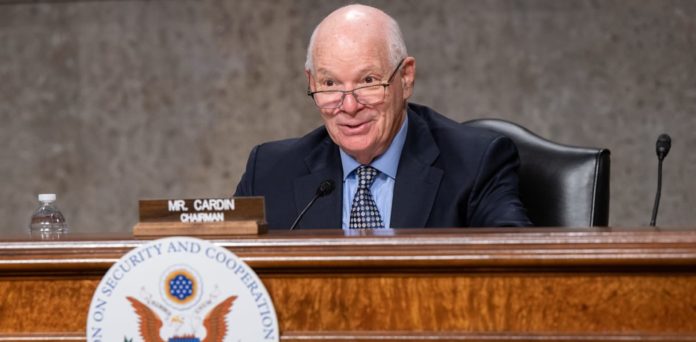Sen. Ben Cardin (D-Md.) Sen. Ben Cardin (D-Md.) is a graduate of The University of Maryland School of Law. He has served as an elected member of Congress since 1985.
Cardin, however, declared earlier this month that hate speech and speech that promotes violence are not protected by the First Amendment. He suggested then that America “learn from Europe’s” government regulation of speech online.
What did Cardin actually say?
Chairman Cardin spoke out against the First Amendment during a Helsinki Commission meeting.
These remarks were made at a Dec. 13 commission meeting, where the topic was the “alarming increase of anti-Semitism”. They received significant attention Wednesday on social media after The Hill published video of Cardin’s comments on Twitter.
\u201c. @SenatorCardin – “If you espouse hatred, or if you advocate violence, then you are not protected by the First Amendment. This type of internet use can be handled more aggressively, I believe. “\u201d
— The Hill (@The Hill), 1672272060
Cardin stated that he believes there is an “role for the government” to regulate internet speech towards the end of the meeting.
Dave Rubin’s content is free from big tech censorship. The Rubin Report is now available.
He said that “for us,” referring to government, “establishing parameters because, if someone espouses hate or violence, they are not protected by the First Amendment.” This type of internet use can be handled more aggressively, I believe.
He said, “We know Europe has done many things. I believe we should learn from one another.”
Is Cardin right?
Cardin, Maryland’s senior senator is completely wrong.
The First Amendment does not allow for “hate speech”, but advocates of violence are generally protected by the Constitution. The restrictions on free expression are extremely narrow.
Making “true threats”, inciting imminent violence, harassment and “unlawful behavior” are legal limitations to the First Amendment. However, espousing hate and violence is not a court-recognized limitation.
Last month, Senator Dick Durbin (D.Ill.), declared that the First Amendment doesn’t protect against misinformation spreading. His incorrect claim led to an immediate lesson in constitutional law.




